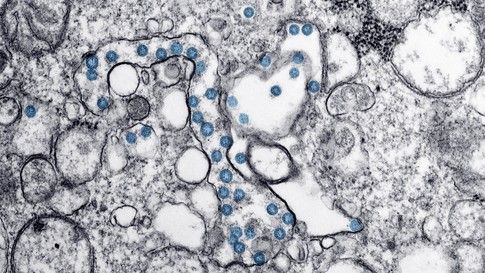We answer 6 key questions about the new COVID-19 variants
 KRC TIMES Desk
KRC TIMES Desk


The last 2 weeks have brought headlines about new variants of COVID-19 that are spreading fast. So what do we need to know, and how can we protect ourselves?
Today we answer 6 key questions about the new COVID-19 variants, using the latest information from the World Health Organization.
1. Why has the COVID-19 virus mutated?
Viruses change as they circulate and these can lead to new or different characteristics. So far, there have been hundreds of variations of the SARS-CoV-2 virus identified worldwide. This is normal and to be expected. But the more the virus spreads, the more opportunity it has to change. So it’s important that we all continue to do what we can to help stop the spread.
2. What are the new COVID-19 variants?
There are two new variants of COVID-19 currently concerning scientists and health officials: one that was first detected in the UK (referred to as SARS-CoV-2 VOC 202012/01), and one first detected in South Africa (named 501Y.V2). Both were reported in December 2020. These two variants are not the same.
3. How can I protect myself from the new variants?
The more the virus spreads, the more opportunity it has to change – so it’s more important than ever that we do what we can against the virus. Following guidance from local governments and the World Health Organization will help stop the virus from spreading and protect ourselves and our families.
4. Are the new variants more harmful?
Initial findings from scientists and researchers suggest that these new variants are not more dangerous in terms of the severity of the disease they cause or the risk of death. However, both variants seem to have increased transmissibility, meaning they spread faster. Because of this, it’s more important than ever to follow guidelines to do what we can to limit the virus spreading.
5. Where are the new variants spreading?
Initially, the new variants were found in the UK (VOC 202012/01) and South Africa (501Y.V2) respectively. However, the new variants have now been identified in many countries – with 31 countries now reporting cases of the VOC 202012/01 variant.
6. Will the existing vaccines protect against the new variants?
We don’t know for sure, but scientists are working hard to better understand these new variants. Researchers in the UK are hopeful that the vaccines will work against the VOC 202012/01 variant. That’s because vaccines train the immune system to attack several different parts of the virus, so although part of the virus has mutated, the vaccines should still work. However, some scientists are questioning if the vaccine will be fully effective against the 501Y.V2 variant. Researchers are continuing to analyse this before we know for certain.





